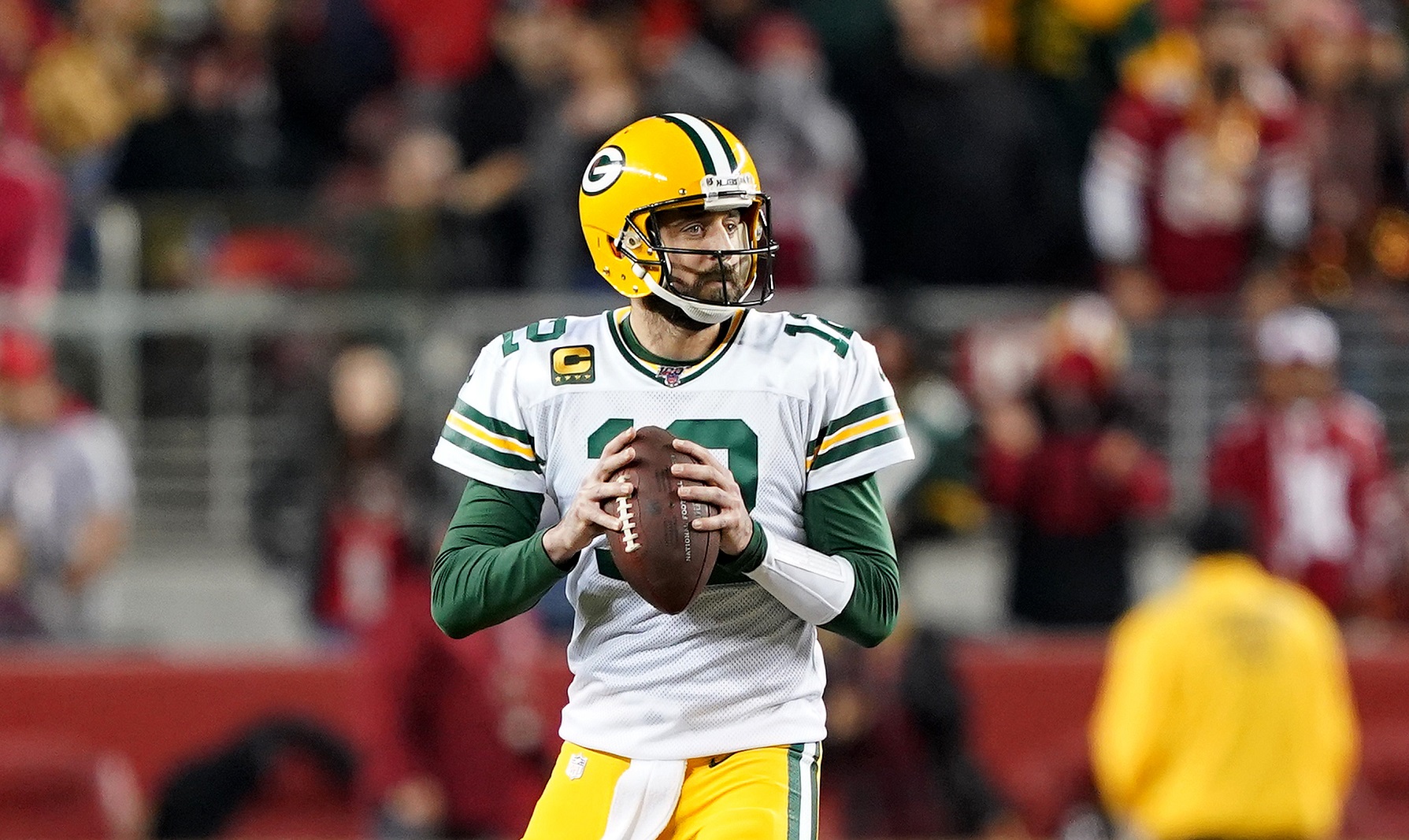NFL
Aaron Rodgers Is Fed up With Seeing His Name in Headlines

The fact that anyone would click a headline to learn why Aaron Rodgers is fed up with seeing his name in headlines explains why the Green Bay Packers quarterback is fed up.
Rodgers isn’t completely unreasonable with his beef, but the veteran of 15 seasons must realize that there’s a price associated with the fame that has made him a fortune.
Aaron Rodgers has produced on the field
RELATED: Brett Favre Just Broke Packers Fans’ Hearts With Aaron Rodgers Scenario
By the time the 2020 NFL season wraps up, the Green Bay Packers will have paid Aaron Rodgers $240 million over 16 seasons to play quarterback. The 36-year-old signal-caller out of the University of California has been compensated nicely for living the fishbowl life of a sports celebrity.
Rodgers has delivered on the field. A first-round pick who has spent his entire career in Green Bay, Rodgers has thrown for 4,000 yards in a season eight times. When he threw for 26 touchdowns and just four interceptions last fall, it continued a history of judicious targeting. His career ratio of 364 TD passes to 84 interceptions is the gold standard of NFL quarterbacks.
He posted passer ratings of 100 or better six consecutive seasons. The 95.4 rating he recorded in 2019 may have been sub-par for Rodgers but would qualify as a career high for a lot of fellow QBs.
Aaron Rodgers is a headline-making machine
RELATED: The Green Bay Packers Just Sent a $12 Million Message About Aaron Rodgers’ Future
Aaron Rodgers can control what he does on the field on Sunday afternoons. He has no control over what is said and written about him on any day of the week ending with the letter “Y.” And that includes a lot of stories that have nothing to do with his performance against the Minnesota Vikings or his injury status after a game against the Chicago Bears.
For instance, Rodgers showed up in more stories than any other NFL veteran in the week after the 2020 NFL draft. That followed the Green Bay Packers’ surprising decision to move up in the first round to select quarterback Jordan Love, who threw for 8,600 yards and 60 TDs in 38 appearances for Utah State.
Three and a half months later, the incessant conjecture about what Love’s arrival means for Rodgers’ future with the Packers continues. Like it or not, that comes with the territory – and Rodgers would undoubtedly understand.
What he doesn’t appreciate is that way some in the media go about the business of reporting. Rogers believes there’s too much stylizing and not enough substance.
The Packers QB wants the media to act responsibly
RELATED: A Green Bay Packers Draft Pick Became One of the Deadliest Serial Killers in American History
NFL Network personality Kyle Brandt launched a new podcast. He scored big when Aaron Rodgers brought his “A” game to the interview. Rodgers unloaded on a media culture more obsessed with making money than providing relevant and accurate information.
In particular, Rodgers ripped into the talking-head TV shows in which panelists purportedly offer analysis but too frequently trigger contrived debates. They take positions for the shock value rather than the substance. Later, those “hot takes” appear as online headlines.
“Everybody’s trying to say the most outlandish thing possible to get the most clickbait.”
Aaron Rodgers
Rodgers makes the point that the headlines and associated stories focus on a tiny snippet and often don’t capture the entire substance of the discussion, leaving readers with the wrong impression.
“All they’re gonna read is eight words on ESPN’s front page and that’s what these people are trying to get people to click on,” he said. “If they get one second on that page, that counts as a page view. And the more page views you get, the more ad revenue you get.”
Rodgers characterized it as “low-class journalism” and questioned the integrity of the panelists.
“I don’t want to look at that and I don’t want to listen to four people on some show yelling at each other about opinions. Do they really feel that way? Or are they trying to be the most outlandish opinion possible so they get the most views when it gets retweeted on Twitter or posted on a 10-second blurb on ESPN.com? I just think it’s really done a disservice to the industry of journalism for sure.”
Aaron Rodgers
All stats courtesy of Pro Football Reference.











